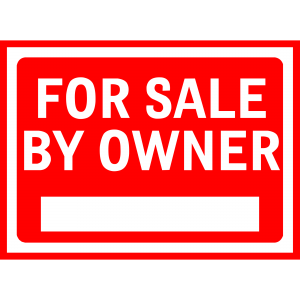Buying a business in Dallas, or anywhere, can be frustrating. But don’t forget these 5 important questions to ask when buying a business.
5 Questions to Ask When Buying a Business
In order to better protect themselves, business buyers typically have a list of questions that hopefully will shed light on the historical performance and current financial health of the business they are looking to purchase.
And that is fine.
Due diligence is designed to focus the buyer’s attention on issues such as financial conditions, business operations, personnel, condition of assets, future liabilities, and more. These all need to be addressed before the buyer can make an informed buying decision.
The Rise of FSBO
 A growing trend in the business market is FSBO (For Sale By Owner) listings and it works just like it sounds. Of course business brokers not only help people sell businesses, they also help people buy businesses. And it’s goes without saying, if you have seen an FSBO, it is a smart idea to contact a business broker to watch out for YOUR interests.
A growing trend in the business market is FSBO (For Sale By Owner) listings and it works just like it sounds. Of course business brokers not only help people sell businesses, they also help people buy businesses. And it’s goes without saying, if you have seen an FSBO, it is a smart idea to contact a business broker to watch out for YOUR interests.
FSBO listed businesses require the buyer to assume far greater responsibility in the buying process. For some buyers, the lack of “broker expertise” can ultimately lead to a unsatisfactory purchasing decision that is based more on gut feelings than on facts. For those business buyers unsure of their ability to make a sound business purchase decision on their own, professional business brokers play an important role.
So, here are the 5 most important questions to ask when buying a business (that hardly anyone ever asks).
5 Questions to Ask When Buying a Business
- Is the Seller Willing to Sign a Non-Compete Clause?
- When Did the Owner Decide to Sell?
 When you ask this question, business owners usually respond with an answer they believe you will like to hear. You’ll hear responses such as “It’s time to retire,” “It’s time for me to do something else,” or something along these lines.
When you ask this question, business owners usually respond with an answer they believe you will like to hear. You’ll hear responses such as “It’s time to retire,” “It’s time for me to do something else,” or something along these lines.
Often, the reason behind the owner’s decision to sell is less important than when the owner decided to put the business on the market.
Ideally, the answer you should be looking for is that the listing didn’t arise suddenly out of nowhere, but rather came as the result of a well-thought out, multiple-year written plan that was conceived by the owner as a means of achieving their business goals. While it’s sadly true that most business owners don’t have a 1 year plan, let alone a 5 or 10 year written plan, you might be pleasantly surprised when they pull one out and hand it to you.
Conversely, if the owner’s decision to list the business happened very quickly, that could be a red flag that the business is in trouble, or that there are some unseen economic threats looming on the horizon, or that the owner hasn’t taken the time to properly prepare due diligence materials and financials needed to make a well-informed purchase.
- What Would You Do to Increase Sales and Profits?
This is a great question that virtually no potential buyer ever asks, and that is why we had to include it on our list of questions to ask when buying a business.
When buying a business, buyers need to create opportunities in which to inject a heavy dose of reality into the buying process. Presumably, the person who is most qualified to offer a realistic perspective about the business and its future growth prospects would be the current owner. But all too often, sellers often prefer to paint a rosy picture of their company rather than simply “telling it like it is”.
One of the ways a buyer can take off the rose colored glasses is to invite the owner to make some suggestions about how to increase sales and profitability. With the right approach, a buyer’s down-to-earth appeal to owner expertise can change the seller’s position from defensive to a more collaborative effort. You may even uncover their non-cash motivations.
- How Did You Arrive at the Asking Price?
 How did the owner valuate the business? Because if it’s based on what they feel they need to walk away with (see the final question), no one at the bargaining table is on the same page.
How did the owner valuate the business? Because if it’s based on what they feel they need to walk away with (see the final question), no one at the bargaining table is on the same page.
In a typical business sale transaction, the buyer and the seller each perform their own valuation of the business’ worth. So from the your perspective as a buyer, the seller’s valuation method isn’t an essential element in determining a reasonable price tag for the company.
However, the seller’s valuation method does become a factor when it comes to gauging the owner’s basis for the asking price in the first place. Why? Typically, sellers assess their business’ worth by way of an asset-based valuation method simply because it is the easiest method to arrive at a valuation. Unfortunately, it also is the least accurate way to determine a value for small businesses.
Instead, savvy business buyers utilize a multiplier valuation method. If the seller also employs a multiplier valuation method, both parties enter the negotiation process on the very same page. If not, the negotiation process will likely become a futile exercise in comparing apples and oranges. The buyer and the seller will both become frustrated because they are unable to agree on a common basis for valuation.
This is a perfect reason to hire a business broker when buying a business.
Lastly,
- What Do You Need to Walk Away With?
No list of questions to ask when buying a business would be complete without this one.
It doesn’t matter what we are selling. A car, a house, an old laptop. We all know 2 things. What we want and what we need. And they are two different things.
And although it may seem unlikely that the seller will disclose his bottom line before the negotiation process has even begun, it’s important for the buyer to make an effort to discover what matters to the seller, and what they will take to seal the deal.
At the very least, buyers who are willing to ask this question will begin to get an idea about the seller’s non-cash motivations.
Knowing the seller’s non-cash motivations can be a powerful negotiation tool for buyers. When the negotiation process hits a wall, knowing everything you can about what is important to the seller can help close the deal.


 At Elan Capital, our professional business brokers use the same care in helping you to buy a business as if we were buying it for ourselves. We can help you buy a business comfortably and efficiently with an experienced professional guiding you through each and every step.
At Elan Capital, our professional business brokers use the same care in helping you to buy a business as if we were buying it for ourselves. We can help you buy a business comfortably and efficiently with an experienced professional guiding you through each and every step.